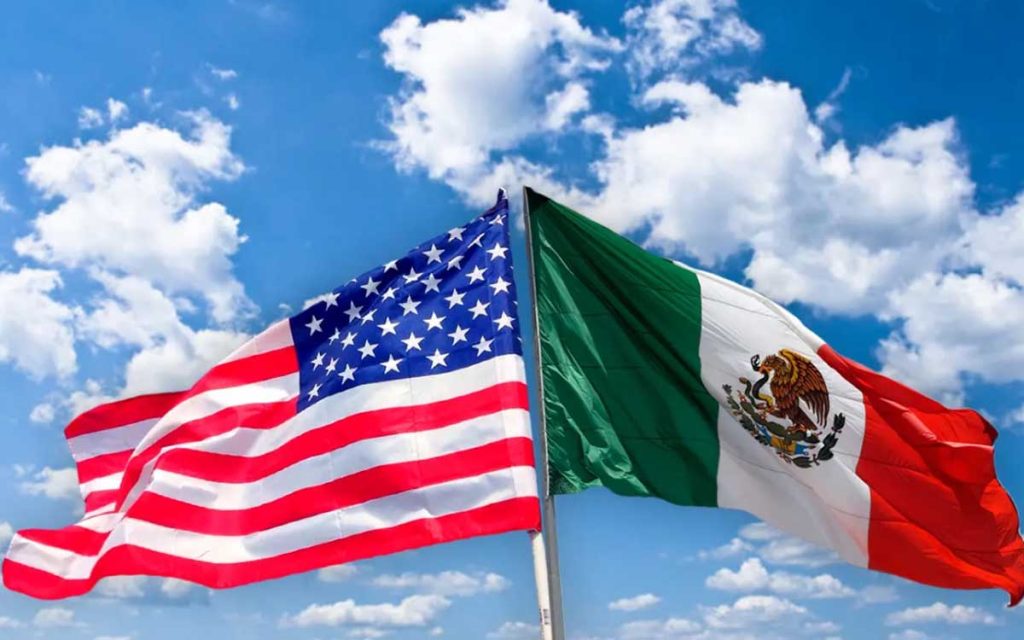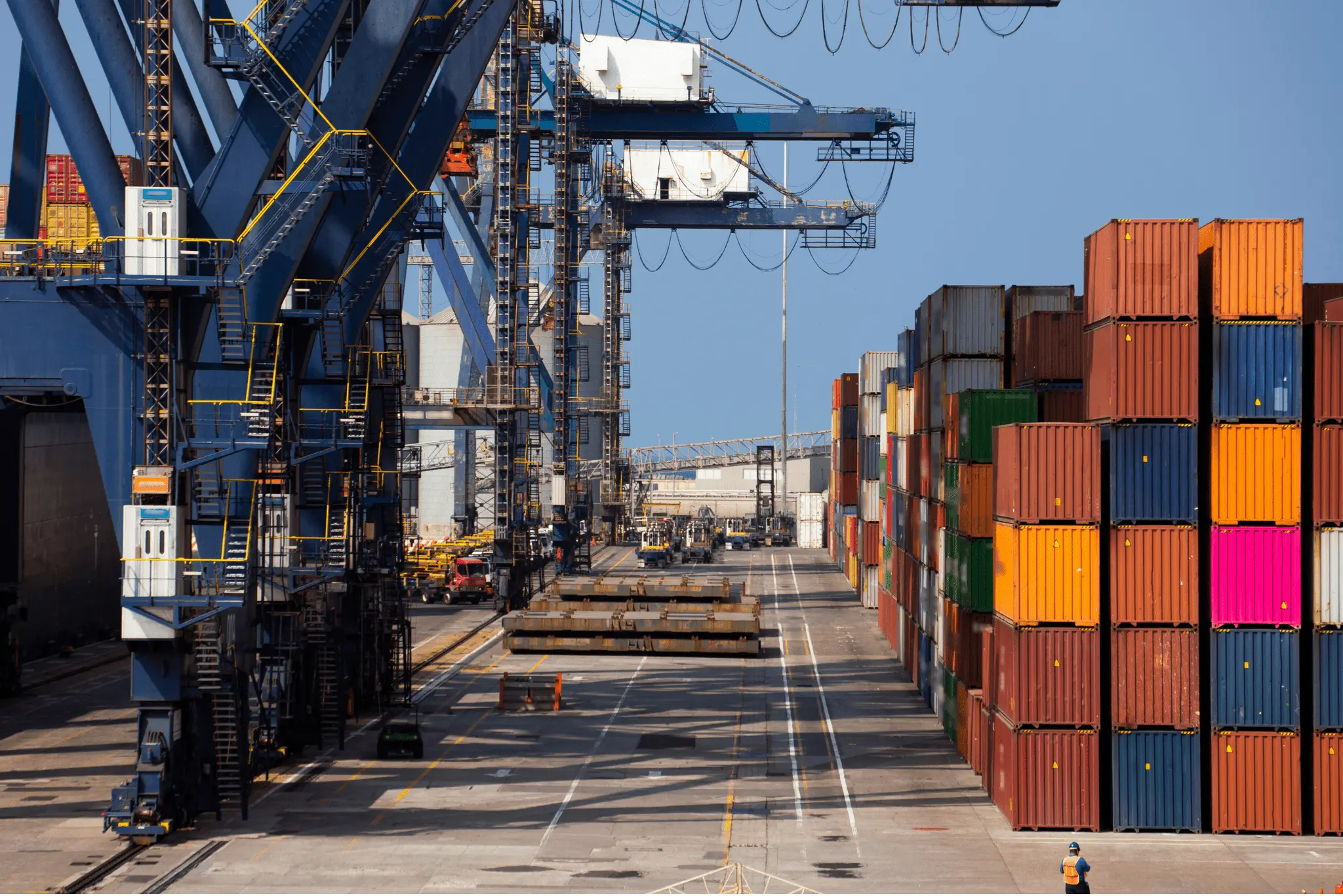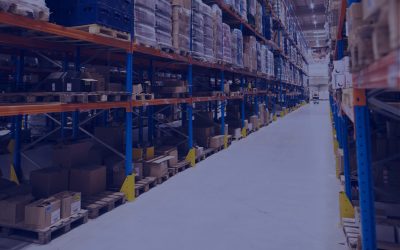After 17 years at the top, China is no longer the biggest exporter of goods and services into the US.
Every region on the planet is seeing major shifts in international trade. The pandemic has had a significant impact on global supply chains, amplified by geopolitical conflicts between the world’s biggest powers. Some figures are already showing winners and losers, none more so than exports to the United States, which show that Mexico has surpassed China and taken the top spot.
Mexico’s rise made headlines because of its major implications for trade: in 2023, after 17 years as the biggest exporter of goods and services into the US, China fell to the third spot, behind Mexico and Canada.
According to the latest official data from the U.S. Department of Commerce from November 2023, imports from China in the first eleven months of last year accounted for 13.9% ($393.137 billion) of U.S.’ total imports, while Mexican goods surpassed 15% ($438.986 billion). This is even more impressive considering that just a few years before, in 2017, Chinese products had a share of more than 21%.
How Mexico Beat China and Became the Biggest Exporter into the US
There are several political, economic, and cultural factors driving Mexico’s rise to the top, chiefly among them the COVID pandemic, which caused $18 billion in losses between 2020 and 2022, according to an article from the National Library of Medicine.
“The effects of COVID compromised the global economy (…) The outbreak not only exposed health and economic weaknesses; it also revealed the critical role of China in global supply chains and the world economy’s reliance on Chinese trade and production,” the authors say, adding that “The goal of Chinese leadership was to achieve zero local transmissions of COVID-19 in China. Driven by this goal, China’s response to COVID involved factory and city shutdowns and strict border controls. With production halted in one of the world’s most productive countries, shortages abounded.”

China’s aggressive measures led importers of Chinese goods and services to start looking for alternatives to solve the issue. American importers found one in NAFTA, the free-trade agreement signed by the US, Canada, and Mexico in 1992. NAFTA has proved a boon for Mexico, as the country doubled its trade activity with the US between 1992 and 2000. However, the trend truly skyrocketed once China began enforcing border checks to avoid the spread of COVID.
“Mexico in particular benefited greatly from NAFTA, and has become the primary source of agricultural products for both the U.S., and Canada. [Thanks to that, i]n 2022 the country overtook China to become the U.S.’ largest source of foreign goods and services after the EU, at 15.2% of import share. Both countries together account for one-third of all U.S. inbound trade,” says an online publisher Visual Capitalist report based on data from the latest U.S. Census.
The second reason behind Mexico’s rise to the top is a rise in tariffs and the establishment of trade restrictions implemented by the US on goods and services from the Asian powerhouse, a process that began in 2018 under the Trump Administration and continued under the Biden administration. This is also known as the “tariff war.”
According to official data, the Trump Administration’s measures had an impact of around $370 billion in Chinese imports per year. Experts claim that Trump’s goal was to expose China’s unfair business practices with its trade partners.
Ideology aside, Trump’s policy seems to have worked, which explains why its successor and current U.S. President Joe Biden has kept it with the backing of America’s biggest corporations. Indeed, Elon Musk has recently said he favors slapping hefty tariffs on Chinese electric vehicles as his company, Tesla, would otherwise be unable to compete with Chinese manufacturers.
And it looks like there is no end in sight for the trade war between the US and China. Recently, Trump – who is seeking to return to the White House in 2024 – announced that if he wins the 2024 Election, he will raise taxes on Chinese goods by 60% of more. While this could hurt the global economy, countries like Mexico are set to benefit from it, as the main effect of this protectionist policy has been a sharp drop in Chinese imports and an exponential increase in those from Mexico.
The Opportunities of Mexico’s Boom
Mexico’s new role as the biggest exporter to the US has attracted global attention to the Latin American nation in recent years.
“Mexico’s economy is enjoying a wide expansion. Growth is projected to reach 3.2% in 2003, boosted by solid consumption and private investment, with remarkably robust service, construction, and car manufacturing sectors,” highlights a recent report by the IMF, adding that this phenomenon “has led to record-low unemployment rates and record-high manufacturing capacity utilization rates.” The FMI expects growth in Mexico to slow down but remain positive at 2.1% in 2024, boosted mainly by the tech industry, which has found fertile ground to develop in the country.
As Mexico emerges as a key player in global trade, companies seeking to leverage nearshoring opportunities require robust logistics infrastructure, including strategic warehousing and distribution capabilities, to ensure seamless operations.

Whether through tech acceleration programs developed decades ago like PROSOFT or flexible regulations implemented to remove obstacles to progress, companies from all over the world not only have invested in Mexico, but also set up shop there to leverage the opportunities provided by the country.
Backed by its own Mexican operations and 25-plus years’ experience in tech-related logistics and Importer of Record (IOR) services, in recent years Aerodoc has been working with organizations looking to do business in that country without having to set up a legal entity or resort to tech resellers that require shipping and packaging services both in Mexico and abroad.
Regarding Mexico, Aerodoc’s experts explain that the construction of data centers and similar infrastructures is among the biggest emerging activities in the country.
Data Centers in Mexico: Aerodoc’s Services
Aerodoc provides a comprehensive solution for companies from the sector who want to build data centers in Mexico. Aerodoc has supported the distribution of data center equipment around the world since 2020, mainly in Asia and Latin America, playing a strategic role in an industry that is expected to grow 4.7% CAGR in 2023-2027.
Second, there is the country’s strategic location, close to the largest telecoms hubs in the US and helped by its robust business relationship with its northern neighbor, two factors that boost business opportunities for those companies that decide to build data centers in Mexico.

Aerodoc’s COO Dan Zonnenschein explains that the company’s Delivery Duty Paid (DDP) + IOR service has helped several data centers send equipment to countries with complex import procedures, speeding up deployments. Aerodoc acts as the middleman in charge of complying with every country’s customs requirements, and obtaining the required licenses and permits, helping companies ship complex equipment such as servers, cables, and racks abroad. This includes, in some cases, installations performed by specialist technicians in the country of destination, thus freeing clients from the burden of opening or managing international subsidiaries.
The Key Role of Tech Resellers
Resellers are also playing a key role in Mexico’s new economic landscape thanks to the tech boom. Aerodoc is a key ally of companies looking to seize these business opportunities from a booming market.
Aerodoc’s EVP of OPS & Customer Service Estefanía Sisatzky explains that for tech resellers, Aerodoc has solutions for everything from shipment repacking to suit each client’s unique needs to shipment consolidation and complex pre-configuration tasks.
“Sometimes, clients will ask us to repack a shipment to meet the needs of each delivery point, so if they have centralized provisioning for three or four locations in different parts of Mexico or even in different countries, each of those will be equipped with different components received by Aerodoc,” she explained. “To do that, the client sends us a pickup list with instructions to configure each location and Aerodoc manages the inventory, segregates requests, and configures each location for its subsequent delivery.”
According to Sisatzky, sometimes Aerodoc receives specialists such as technicians or project leads in charge of preparing locations. “In those cases, we act as a consolidation hub where experts work on shipment segregation or even more complex configuration or pre-configuration tasks.”
Thanks to our vast expertise, Aerodoc stands out as the provider of choice in niche, hard-to-access markets not only for data centers and tech resellers but for also large IOR corporations that outsource their services with us. Our specialty is simplifying global trade, a particularly useful service in industries such as IT, broadcasting, satellites, and many others.
For more information about our services, do not hesitate to contact our team. We’ll be thrilled to help you and provide more details.




